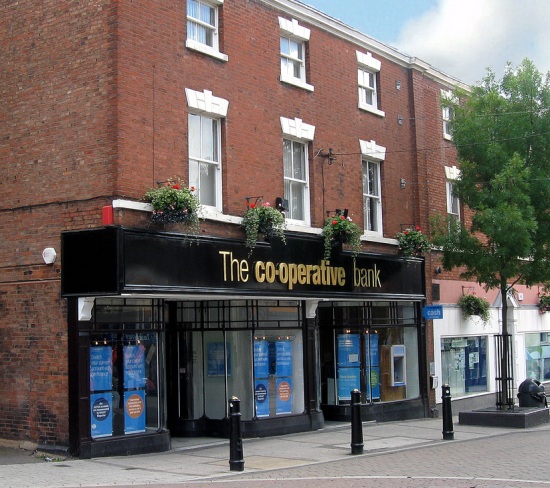The Co-Operative has long been known in the UK as a reputable commercial property trader for food and other essentials. However, with a new deal secured earlier this week, it appears that they will now be giving a wider range of commercial properties than supermarkets a run for their money – literally.

Lloyds Banking Group and the Co-Operative sealed a deal in which the long standing British favourites will take over 632 Lloyds commercial property banks. This promises to make the Co-Operative banks firm challengers in high street banking, especially as many members of the British public have become disillusioned with the larger and more well-known banking commercial property chains since the start of the recession and the banking crash in 2007.
The agreement comes after months of negotiations and controversies surrounding the issue, and has allowed the Co-Op to effectually demutualise both the TSB and Cheltenham and Gloucester commercial property brands.
Additionally, the Co-Op has greatly benefited from the sale financially, as Lloyds Banking Group will lose around £700 million on the sale of the commercial property banks. This is due to the £20 billion of taxpayers’ funds used to bail out the struggling chain in recent years, leading to a demand from Brussels to sell on the commercial properties to the Co-Op at a cut price rate.
The Co-Op will pay £350 million for all 632 branches, using bonds underwritten by Lloyds Banking Group itself. While the Co-Op may pay a further £400 million by 2027 for further investments into the commercial property banking sector, Lloyds will bear the brunt of costs by contributing a further £1.5 billion for the further maintaining of the branches and commercial property staff members.
Yet Peter Marks, chief executive of the Co-Operative commercial property chain, admits that it may be several years for the 632 banks to be completely removed from the Lloyds Banking Group system. Until that point, the Co-Op and Lloyds Banking Group will work on a semblance of partnership, but one which will, above all, benefit the taxpayer by reimbursing the colossal bail out of several years ago.
The EU deadline for the official split of the businesses is not until November, and even past that point Lloyds will continue to be minority shareholders in the Co-Operative Banks, thus receiving a small percentage of profits from the high street bank commercial properties. The deal will also see the TSB brand return to the high street through these commercial properties, following a rebrand in the summer of 2013.
Analyst at Shore Capital, Gary Greenwood, said; “The shape and size of the business being transferred is different to that initially envisaged, being both smaller and match funded – a necessity in our view, if the Co-Op was ever going to be able to reach an agreement.
“The Co-Op will pay nominal consideration of £800 million (of which only £350 million will be paid up front), which is below the £1 billion that had been recently suggested in the media but well below the original expectation of £1.5 billion – albeit that was based on a bigger asset being sold.”
It is not just the taxpayer that will benefit from this sale; however, as included in the deal was the proviso that the 7,000 staff currently working in the commercial property banking branches will be allowed to retain their jobs and job roles.
Lloyds Banking Group will also relinquish the accounts of 3.4 million customers to the Co-Operative controlled commercial properties.
Are you a Lloyds Banking Group customer? Would you prefer to be transferred to a Co-Operative commercial property bank or do you think Lloyds should have been given another chance to correct mistakes made since the start of the recession?